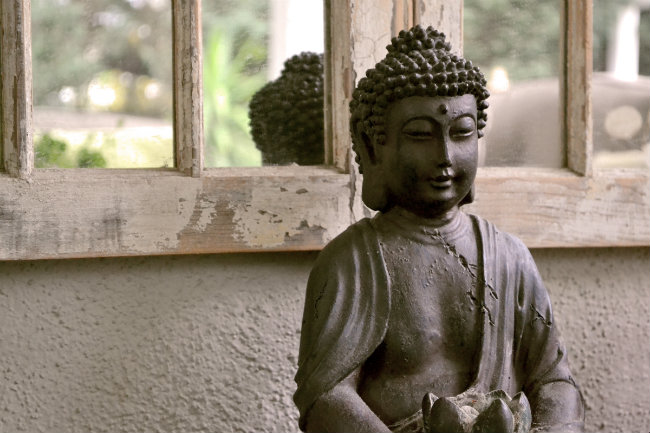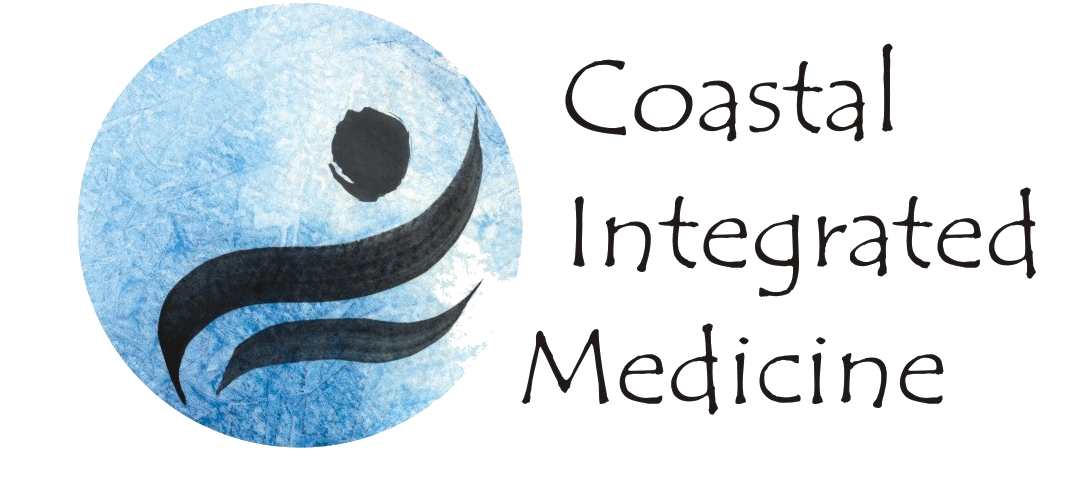 “The doctor of the future will give no medication, but will interest his patients in the care of the human frame, diet and in the cause and prevention of disease. ” ~ Thomas Edison I have been in practice for well over ten years now and have learned so much about health, people, patterns and the human body. When I was a student I was intrigued by so many of the concepts and mysteries of Traditional Chinese Medicine. I was fascinated with every facet of it. How could a person be diagnosed by changes in the pulse, tongue and complexion? How could personality traits indicate with great accuracy the type of illness a person would be susceptible to? There were so many questions and mystery. I was in awe of it all. As the years went by and I treated more and more people, I began to really understand TCM. It was not magical or mysterious, it was based on concrete observable patterns. Yes, the tongue does reflect the health with great accuracy. The tongue is an extension of the esophagus which connects to the stomach. Inflammation and acidity that originate in the stomach will show on the tongue. It’s not a mystery just simple observation; like paleness under the eyelid when a person is anemic. If you see hundreds of tongues, after awhile you see patterns. The part reflects the whole. TCM diagnosis and treatment is the culmination of 2000 years of careful observation and recognition of patterns in the body. The tongue is only one method of ‘reading’ the body. The pulse, complexion, voice, body type, hair...
“The doctor of the future will give no medication, but will interest his patients in the care of the human frame, diet and in the cause and prevention of disease. ” ~ Thomas Edison I have been in practice for well over ten years now and have learned so much about health, people, patterns and the human body. When I was a student I was intrigued by so many of the concepts and mysteries of Traditional Chinese Medicine. I was fascinated with every facet of it. How could a person be diagnosed by changes in the pulse, tongue and complexion? How could personality traits indicate with great accuracy the type of illness a person would be susceptible to? There were so many questions and mystery. I was in awe of it all. As the years went by and I treated more and more people, I began to really understand TCM. It was not magical or mysterious, it was based on concrete observable patterns. Yes, the tongue does reflect the health with great accuracy. The tongue is an extension of the esophagus which connects to the stomach. Inflammation and acidity that originate in the stomach will show on the tongue. It’s not a mystery just simple observation; like paleness under the eyelid when a person is anemic. If you see hundreds of tongues, after awhile you see patterns. The part reflects the whole. TCM diagnosis and treatment is the culmination of 2000 years of careful observation and recognition of patterns in the body. The tongue is only one method of ‘reading’ the body. The pulse, complexion, voice, body type, hair...
 Here is a little video I made introducing the concepts of Qi Gong. It is 16 minutes long and covers some of the ideas that are important in Qi Gong practice and can really help you understand why the practice makes you feel so...
Here is a little video I made introducing the concepts of Qi Gong. It is 16 minutes long and covers some of the ideas that are important in Qi Gong practice and can really help you understand why the practice makes you feel so...
 Happy ‘Year of the Horse’! The Chinese zodiac is based on a twelve year cycle. Each year in the cycle is named after an animal and associated with an element. The elements are earth, water, metal, fire and wood. In Traditional Chinese Medicine there is a form of treatment based on the five elements known as “Five Element” acupuncture. A person’s ‘element’ is identified based on their constitution and health patterns. Each element is associated with different organs in the body and has associated strengths and weaknesses. As for the Chinese zodiac, today marks the beginning of the year of the horse (‘wood’ element). People born in the year of the horse are said to be social, active, energetic and positive! The year of the horse is supposed to be an important one and a time of good health. May your 2014 hold much health and...
Happy ‘Year of the Horse’! The Chinese zodiac is based on a twelve year cycle. Each year in the cycle is named after an animal and associated with an element. The elements are earth, water, metal, fire and wood. In Traditional Chinese Medicine there is a form of treatment based on the five elements known as “Five Element” acupuncture. A person’s ‘element’ is identified based on their constitution and health patterns. Each element is associated with different organs in the body and has associated strengths and weaknesses. As for the Chinese zodiac, today marks the beginning of the year of the horse (‘wood’ element). People born in the year of the horse are said to be social, active, energetic and positive! The year of the horse is supposed to be an important one and a time of good health. May your 2014 hold much health and...
 The Effects of Fall According to Traditional Chinese Medicine The days are getting shorter, the leaves are getting crisper and Fall is in the air. Fall is a time for looking inward and quiet contemplation. It is a time of reflection and creativity. According to Traditional Chinese Medicine (TCM), each season affects the body and mind in a different way. The change of seasons is a time of dynamic change for the internal organs and it is during these seasonal transitions that we are most susceptible to getting sick. In Chinese Medicine Fall is the season of the ‘Metal’ element. Metal is associated with the emotion of grief or sadness and affects the physical body through the lungs and large intestine. This means that in the Fall we are more susceptible to colds and flu’s with runny nose, cough and fatigue. It is also the time of year where our ‘wei qi’ (immune system) is low and a simple cold can turn into something much more serious for those with weakened immunity. We often see people hit hard with bronchitis and pneumonia around this time of year. Each emotion affects the body in a different way. The emotion of sadness or grief has an inverse relationship with the lungs. Grief or extreme sadness weakens the lungs and can cause physical symptoms such as shortness of breath, asthma or even pneumonia and conversely lung problems can cause a feeling of sadness. It is not uncommon for someone who is grieving the loss of a loved one to develop bronchitis. Constipation is another symptom that often appears in the Fall season....
I was intending on mentioning this earlier, but this Saturday and Sunday we will be holding “Intro to TCM and Meridian Therapy for Healthcare Practitioners” workshop at Camosun College.Camosun Map pdf download We have refined the “system” so that any healthcare practitioner can apply the concepts of Traditional Chinese Medicine(TCM) into their practice immediately after the workshop. It is a very full weekend! We will cover: 8 Principles 5 Elements diagnosis the meridians the most important acupuncture points and how to use them without needles We are very excited to be refining and perfecting this system so that even more people can reap the benefits of this century old tradition! Go here if you would like more info. See you there! ~Think...
The Effects of Fall According to Traditional Chinese Medicine The days are getting shorter, the leaves are getting crisper and Fall is in the air. Fall is a time for looking inward and quiet contemplation. It is a time of reflection and creativity. According to Traditional Chinese Medicine (TCM), each season affects the body and mind in a different way. The change of seasons is a time of dynamic change for the internal organs and it is during these seasonal transitions that we are most susceptible to getting sick. In Chinese Medicine Fall is the season of the ‘Metal’ element. Metal is associated with the emotion of grief or sadness and affects the physical body through the lungs and large intestine. This means that in the Fall we are more susceptible to colds and flu’s with runny nose, cough and fatigue. It is also the time of year where our ‘wei qi’ (immune system) is low and a simple cold can turn into something much more serious for those with weakened immunity. We often see people hit hard with bronchitis and pneumonia around this time of year. Each emotion affects the body in a different way. The emotion of sadness or grief has an inverse relationship with the lungs. Grief or extreme sadness weakens the lungs and can cause physical symptoms such as shortness of breath, asthma or even pneumonia and conversely lung problems can cause a feeling of sadness. It is not uncommon for someone who is grieving the loss of a loved one to develop bronchitis. Constipation is another symptom that often appears in the Fall season....
I was intending on mentioning this earlier, but this Saturday and Sunday we will be holding “Intro to TCM and Meridian Therapy for Healthcare Practitioners” workshop at Camosun College.Camosun Map pdf download We have refined the “system” so that any healthcare practitioner can apply the concepts of Traditional Chinese Medicine(TCM) into their practice immediately after the workshop. It is a very full weekend! We will cover: 8 Principles 5 Elements diagnosis the meridians the most important acupuncture points and how to use them without needles We are very excited to be refining and perfecting this system so that even more people can reap the benefits of this century old tradition! Go here if you would like more info. See you there! ~Think...





